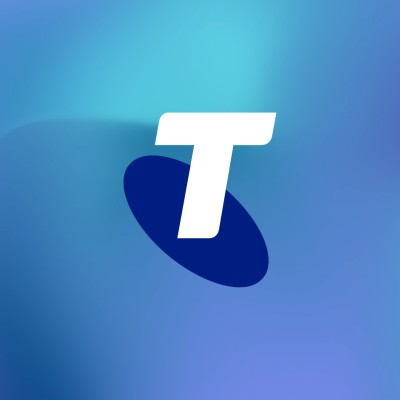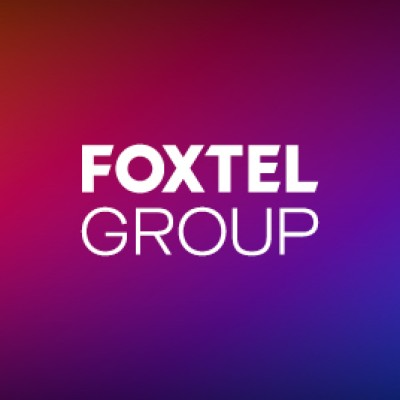News Corp Sells Foxtel to DAZN: A Strategic Shift in the Media Landscape
December 23, 2024, 10:32 pm

Location: Australia, New South Wales, Sydney
Employees: 10001+
Founded date: 1975
In a move that echoes the shifting tides of the media industry, News Corp has announced the sale of its Australian cable television unit, Foxtel, to the British sports streaming service DAZN for a staggering A$3.4 billion (approximately $2.1 billion). This decision marks a significant pivot for Rupert Murdoch's media empire, which has been grappling with the relentless rise of streaming platforms that have reshaped the viewing habits of consumers.
Foxtel, once a titan in the Australian pay-TV landscape, has faced mounting pressure as viewers flock to more affordable streaming options like Netflix and Disney+. Launched in 1995, Foxtel was the go-to destination for premium sports and entertainment. However, as the digital revolution gained momentum, its subscriber base began to dwindle. The deal with DAZN signals a strategic retreat from a business model that has become increasingly untenable.
DAZN, pronounced "Da Zone," is backed by billionaire Len Blavatnik, a figure known for his aggressive investments in the media sector. With this acquisition, DAZN not only secures a foothold in the Australian market but also gains access to lucrative streaming rights for major sports leagues, including the Australian Football League (AFL) and the National Rugby League (NRL). This is a game-changer for DAZN, which has been steadily expanding its global reach since its inception in 2016.
The valuation of Foxtel at seven times its projected 2024 EBITDA is a testament to the company's historical significance, even as it grapples with a challenging future. Analysts have noted that this multiple exceeds expectations, reflecting a recognition of Foxtel's brand equity and its established presence in the market. However, the sale also underscores the reality that traditional cable models are increasingly viewed as relics in an era dominated by streaming giants.
News Corp's decision to retain a 6% stake in DAZN and secure a board seat indicates a desire to remain connected to the evolving media landscape. This strategic move allows News Corp to pivot its focus toward its core operations, which include publishing and digital real estate. CEO Robert Thomson has emphasized the importance of this deal in streamlining the company's portfolio, allowing it to concentrate on areas with greater growth potential.
The implications of this sale extend beyond News Corp. The Australian media landscape is in flux, with traditional players struggling to adapt to the rapid changes brought about by digital disruption. Foxtel's challenges are emblematic of a broader trend where consumers are increasingly opting for on-demand content over traditional cable subscriptions. As sports broadcasting costs continue to rise, Foxtel has found itself in a precarious position, forced to share rights with free-to-air broadcasters to maintain its relevance.
DAZN's entry into the Australian market could potentially reshape consumer expectations. With its reputation for competitive pricing and a diverse range of sports content, DAZN may challenge the status quo established by Foxtel. This shift could lead to a re-evaluation of pricing models across the industry, as consumers demand more value for their subscriptions.
The sale also reflects a broader trend of consolidation in the media industry. As companies seek to navigate the complexities of a rapidly changing landscape, mergers and acquisitions have become a common strategy. The partnership between News Corp and DAZN could serve as a blueprint for future collaborations, as traditional media companies look to align themselves with agile digital platforms.
In the wake of the announcement, shares of News Corp saw a notable uptick, rising 3.5% on the Australian Stock Exchange. This positive market reaction suggests that investors view the sale as a prudent move, one that could enhance the company's long-term viability. Meanwhile, Telstra, which held a 35% stake in Foxtel, is also set to benefit from the deal, receiving A$128 million in cash and a 3% stake in DAZN.
As the media landscape continues to evolve, the sale of Foxtel to DAZN serves as a reminder of the challenges faced by traditional players. The winds of change are blowing, and companies must adapt or risk being left behind. For News Corp, this sale represents not just a financial transaction, but a strategic realignment in a world where content is king, and flexibility is paramount.
In conclusion, the sale of Foxtel to DAZN is a pivotal moment in the ongoing saga of the media industry. It highlights the necessity for traditional companies to innovate and adapt in the face of relentless competition from digital disruptors. As consumers increasingly turn to streaming services for their entertainment needs, the future of media will be defined by those who can navigate this new terrain with agility and foresight. The deal is not just about numbers; it’s about survival in a rapidly changing world.
Foxtel, once a titan in the Australian pay-TV landscape, has faced mounting pressure as viewers flock to more affordable streaming options like Netflix and Disney+. Launched in 1995, Foxtel was the go-to destination for premium sports and entertainment. However, as the digital revolution gained momentum, its subscriber base began to dwindle. The deal with DAZN signals a strategic retreat from a business model that has become increasingly untenable.
DAZN, pronounced "Da Zone," is backed by billionaire Len Blavatnik, a figure known for his aggressive investments in the media sector. With this acquisition, DAZN not only secures a foothold in the Australian market but also gains access to lucrative streaming rights for major sports leagues, including the Australian Football League (AFL) and the National Rugby League (NRL). This is a game-changer for DAZN, which has been steadily expanding its global reach since its inception in 2016.
The valuation of Foxtel at seven times its projected 2024 EBITDA is a testament to the company's historical significance, even as it grapples with a challenging future. Analysts have noted that this multiple exceeds expectations, reflecting a recognition of Foxtel's brand equity and its established presence in the market. However, the sale also underscores the reality that traditional cable models are increasingly viewed as relics in an era dominated by streaming giants.
News Corp's decision to retain a 6% stake in DAZN and secure a board seat indicates a desire to remain connected to the evolving media landscape. This strategic move allows News Corp to pivot its focus toward its core operations, which include publishing and digital real estate. CEO Robert Thomson has emphasized the importance of this deal in streamlining the company's portfolio, allowing it to concentrate on areas with greater growth potential.
The implications of this sale extend beyond News Corp. The Australian media landscape is in flux, with traditional players struggling to adapt to the rapid changes brought about by digital disruption. Foxtel's challenges are emblematic of a broader trend where consumers are increasingly opting for on-demand content over traditional cable subscriptions. As sports broadcasting costs continue to rise, Foxtel has found itself in a precarious position, forced to share rights with free-to-air broadcasters to maintain its relevance.
DAZN's entry into the Australian market could potentially reshape consumer expectations. With its reputation for competitive pricing and a diverse range of sports content, DAZN may challenge the status quo established by Foxtel. This shift could lead to a re-evaluation of pricing models across the industry, as consumers demand more value for their subscriptions.
The sale also reflects a broader trend of consolidation in the media industry. As companies seek to navigate the complexities of a rapidly changing landscape, mergers and acquisitions have become a common strategy. The partnership between News Corp and DAZN could serve as a blueprint for future collaborations, as traditional media companies look to align themselves with agile digital platforms.
In the wake of the announcement, shares of News Corp saw a notable uptick, rising 3.5% on the Australian Stock Exchange. This positive market reaction suggests that investors view the sale as a prudent move, one that could enhance the company's long-term viability. Meanwhile, Telstra, which held a 35% stake in Foxtel, is also set to benefit from the deal, receiving A$128 million in cash and a 3% stake in DAZN.
As the media landscape continues to evolve, the sale of Foxtel to DAZN serves as a reminder of the challenges faced by traditional players. The winds of change are blowing, and companies must adapt or risk being left behind. For News Corp, this sale represents not just a financial transaction, but a strategic realignment in a world where content is king, and flexibility is paramount.
In conclusion, the sale of Foxtel to DAZN is a pivotal moment in the ongoing saga of the media industry. It highlights the necessity for traditional companies to innovate and adapt in the face of relentless competition from digital disruptors. As consumers increasingly turn to streaming services for their entertainment needs, the future of media will be defined by those who can navigate this new terrain with agility and foresight. The deal is not just about numbers; it’s about survival in a rapidly changing world.


